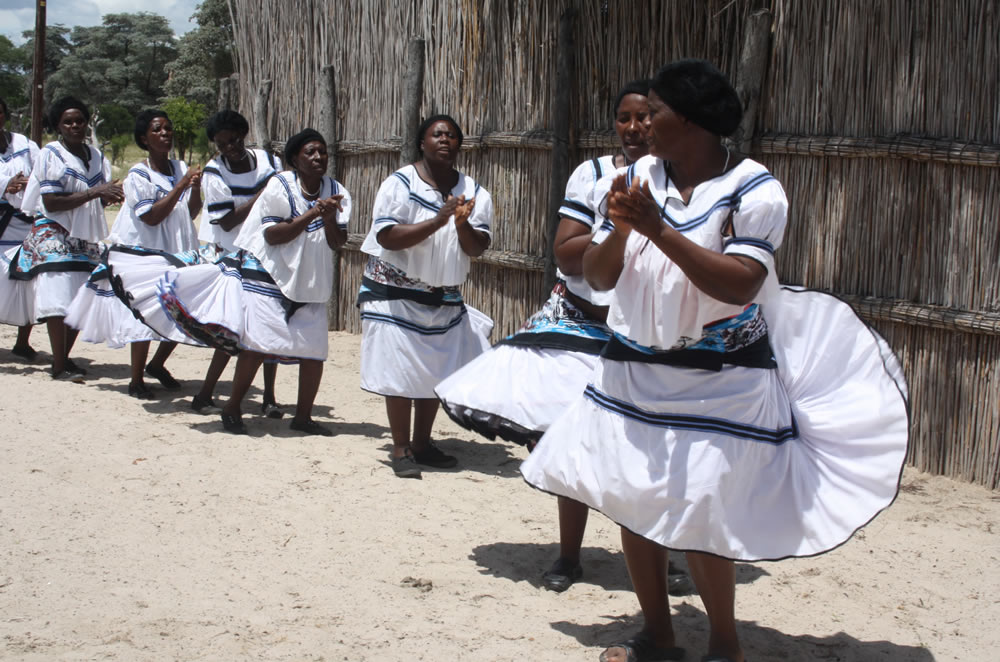The Basubiya tribe also called Veekuhane speak the language called Chiikuhane. This Veekuhane refers to a group of people that are living along the Ikuhane (Chobe) river. It was reported by Pretorius (1975) that the Basubiya tribe was formerly called Batwa; a group of clans that were all living on the islands of the Kafue flood plains duringthe 15th century. It was while they were there they started referring to themselves as a tribe under the rule of Chief Muniteenge Iteenge. The Basubiya tribe alongside the Wayeyi (Bayei) and Mbukushu tribes are the riverines tribes that are established all around the Chobe and Linyanti Rivers and across the Okavango Panhandle. It was reported by tradition that for a very long time, the Basubiya were known as the ruling power chasing the Wayeyi tribe away from around the Chobe River to the Okavango all because of a fight over the skin of a lion skin. Due to their job as agriculturists, they were preyed on by the Lozi Empire, which later collapsed in 1865. The Basubiya tribe is still in the Chobe district till today.
Their social and economic life of the Basubiya tribe revolves around their environment; the riverine. This is the only environment they have lived, adapted to and evolve in as a tribe. This environment provides their food, source of shelter; it is the basis for their religious and supernatural beliefs. It is hard to imagine the Basubiya tribe living outside their riverine environment.

Just like in other societies where human reside in, family is also the beginning and smallest social form of organisation for the Basubiya’s. The head of the family is usually the oldest male (preferably the grandfather), with the youngest of the children taking the lowest post in the family. A ward is formed when a group of close relatives are living closer to one another. Relationship within the family is formed as result of marriage, birth of babies, adoption and immigration. Marriage among the Basubiya’s is a form of forming a family and growing it. When a woman is married, she is expected to move in with her in-laws, but new couples are also expected to form their own Irapa (home and family). The way such home is managed will determine its status in the community; also polygamy is practiced and accepted among the Basubiya tribe.
The Basubiya’s engage in numerous economic activities including, pottery, blacksmith, hunting, basket making, carving and agriculture. Since they are into agriculture, they keep farming, and keeping livestock some of which are cattle, sheep, goats, donkeys, horses and chickens. They used cattle as source of draught on their farmland, they get protein from them in form of milk and meat. Apart from just food, they price cattle a lot in such that people are respected based on the number of herds they possess.
Also because they live in the riverine areas, they engage in fishing and they are known for their skills. They were using traditional nets for fish before they adopted the use of the modern fishing nets. The crafted nets called lukuku are made to allow the fish stay in and not go out. They have had their culture and tradition influenced by the external cultures as a result of the urban life, the younger generations of the Subiyas are now exposed to traditions that did not originate from Subiyas.